In brief
Enrol Yourself takes a relationship-centred approach to lifelong learning, connecting adults into peer groups that help each individual multiply their learning over 6 months. Enrol Yourself train ‘Hosts’ who lead these peer groups. We’re featuring a mini blog series, where in each piece, an Enrol Yourself Host reflects on their practice of building strong relationships, as a facilitator. In this blog, Jahnvi Singh tells us her five takeaways from conversations on what it means to build relationships & truly belong.
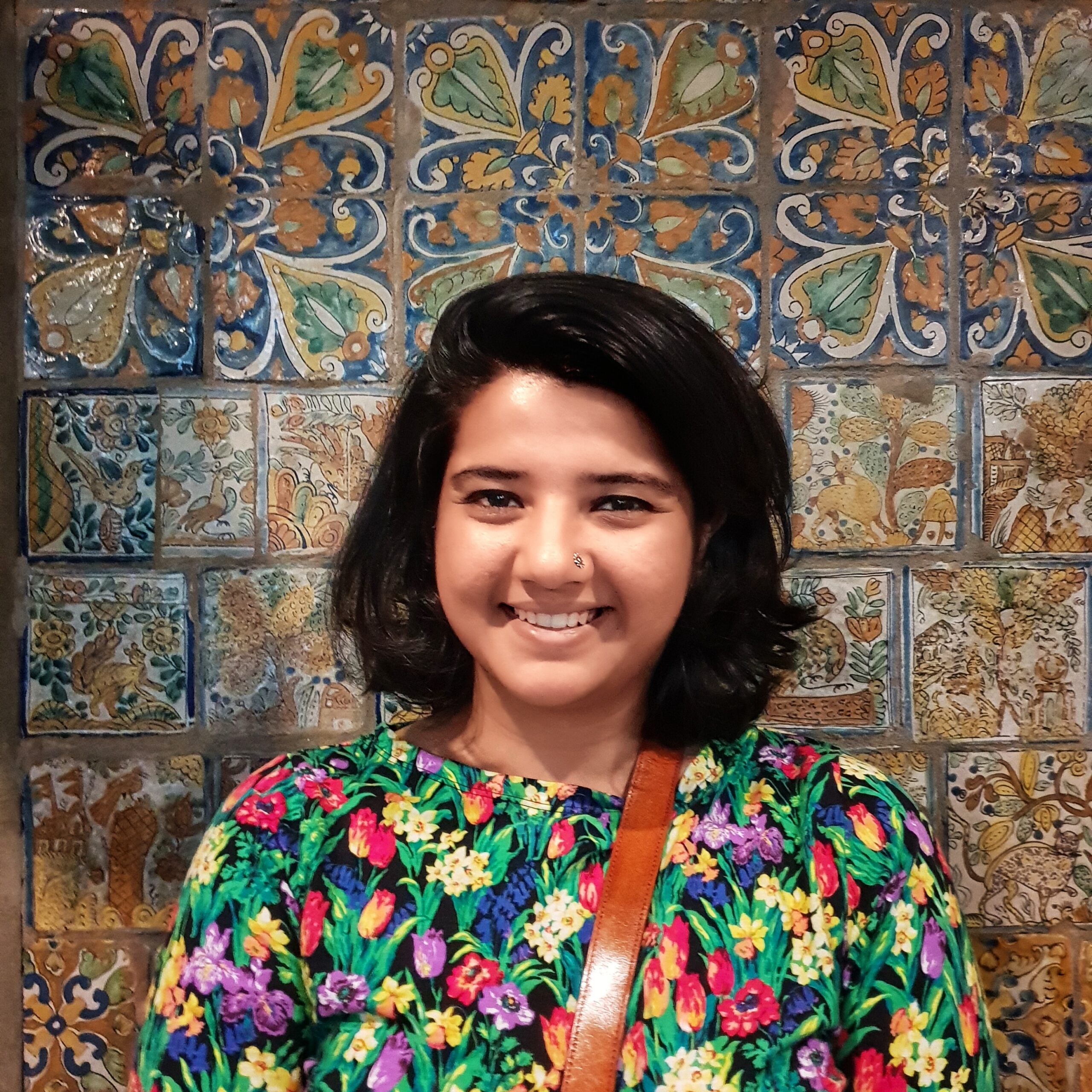
Jahnvi Singh
Jahnvi is a learning designer, facilitator, coach, and an Enrol Yourself Host. Drawing on her journey as a migrant navigating her many belongings, she is hosting Our Shared Belonging – a 6 month online Learning Marathon for all of those crossing boundaries in search of home, community, belonging or purpose.
Follow her on Twitter, Instagram and connect with her on LinkedIn
This article shares my top 5 insights from 21 conversations about belonging. I’ve spoken to friends, family and professional contacts about the questions they’ve been asking themselves as they craft belonging in their lives, and learnt that relationships play a central role in this. This is part of a longer exploration into home and belonging which I’m embarking on along with 11 co-explorers.
“As a human being, all you have to do is enumerate exactly the way you don’t feel at home in the world — to say exactly how you don’t belong — and the moment you’ve uttered the exact dimensionality of your exile, you’re already taking the path back to the way, back to the place you should be.
You’re already on your way home.”
When someone asks me where I’m from, I say I’m a proud Dilliwali. I was born and raised in New Delhi, the multicultural capital of India, where I could confidently say I was someone. I knew routes and held memories. I knew how to have conversations with gestures or the look of an eye. I was financially stable and had crafted a unique professional identity.
Photo of Lodhi Gardens by my mum. Memories of Sunday picnics, my childhood, mum’s food.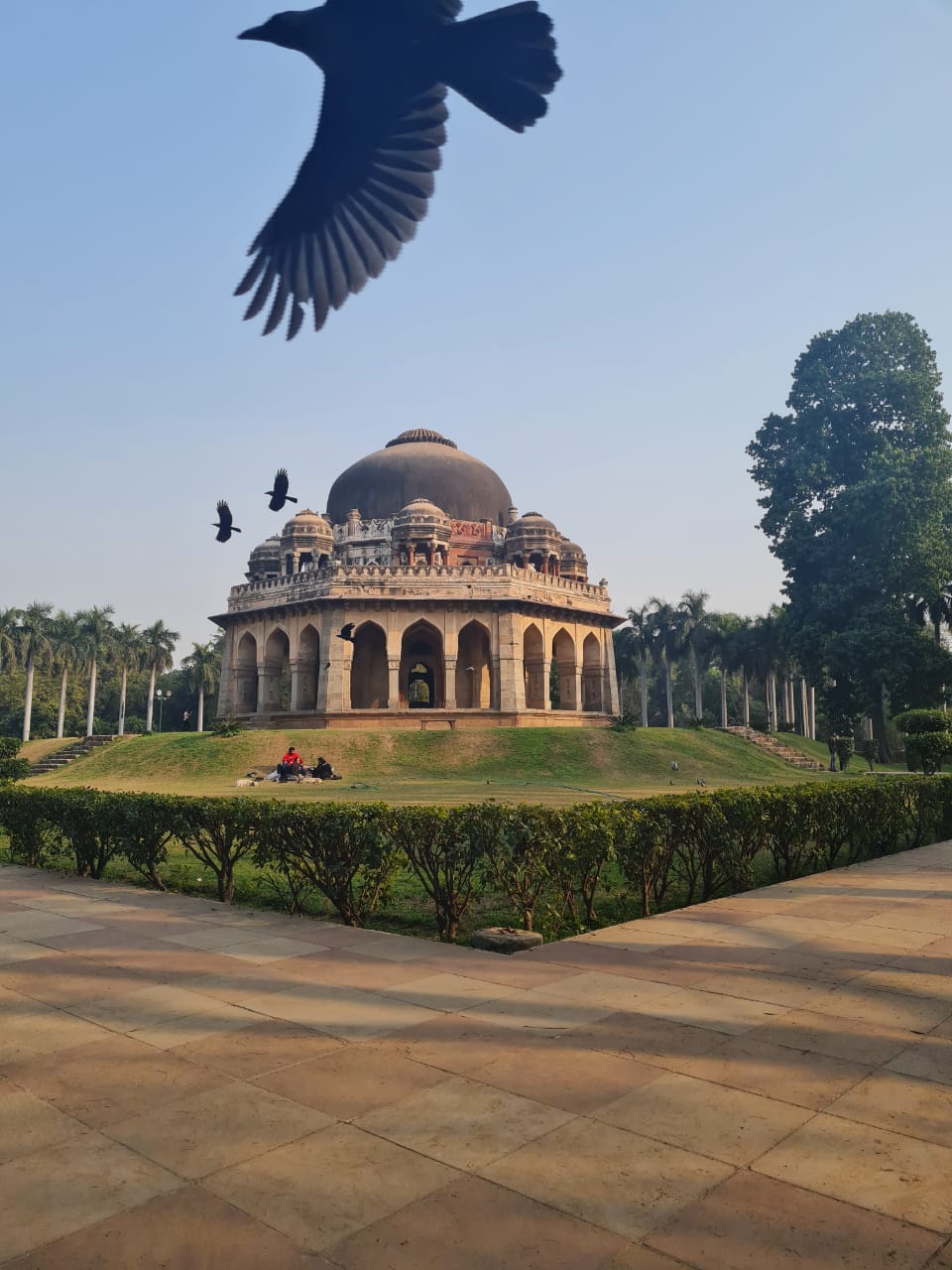
In the summer of 2020, on a particularly sunny day in a deeply isolating lockdown, I finally opened myself up to experimenting with online networking via Lunchclub. In the process, I had a chat with a stranger who, as a digital nomad, had lived across Europe while setting up their business. Intrigued, I asked them how they stayed focused on their professional vision while moving homes.
“I have my relationship-building rituals in place – like identifying which coffee shop I will become a regular at, which path I will run along, how I will say hello to my new neighbours – so that no matter where I move to, I can create my bearings and sense of belonging. It starts from within after all!”
This changed everything! I left this conversation asking: How can I have more of these conversations, how can I learn from other people’s experiences as they craft their sense of home and belonging?
In December 2020, as we were all cautiously stepping into 2021 hoping and praying that the pandemic, the isolation, the grief would settle down in the new year, I started reaching out to family, friends, and friends of friends who had not only helped build belonging in my life but had built belonging in theirs and the world around them. Each hour-long chat ended with me asking my conversation partner what big question about home and belonging they are asking themselves at the moment. Every conversation was like walking into a room of mirrors. I heard my unsaid feelings be given words by someone else. I started noticing patterns of interconnectedness in the feelings of isolation everyone spoke of.
These 21 Chats on Belonging have fundamentally changed my relationship with the words ‘home’ and ‘belonging’, and I am sharing them across social media to start a bigger conversation around an often lonely journey of finding our place, identity and community.
Here are the top 5 things I have learnt from my conversations and from holding this space of dialogue and curiosity:
1. Home is a feeling, not a place
Homesickness is real, but what we miss is how we felt in the places that comforted us and the relationships that nurtured us. The notion of home for a person who has left it is extremely complex. It’s almost impossible to return to how it used to be because the people, places, and patterns we hold on to change in our absence. Finding home in a new place is about recreating those feelings of comfort, of rootedness, of growth. Is it by finding a local hobby/networking group? By finding the ingredients to your favourite comfort food? Is it by mapping your own walking/running routes? Is it by setting up a ritual of online pub gatherings or Get-shit-done days with friends?
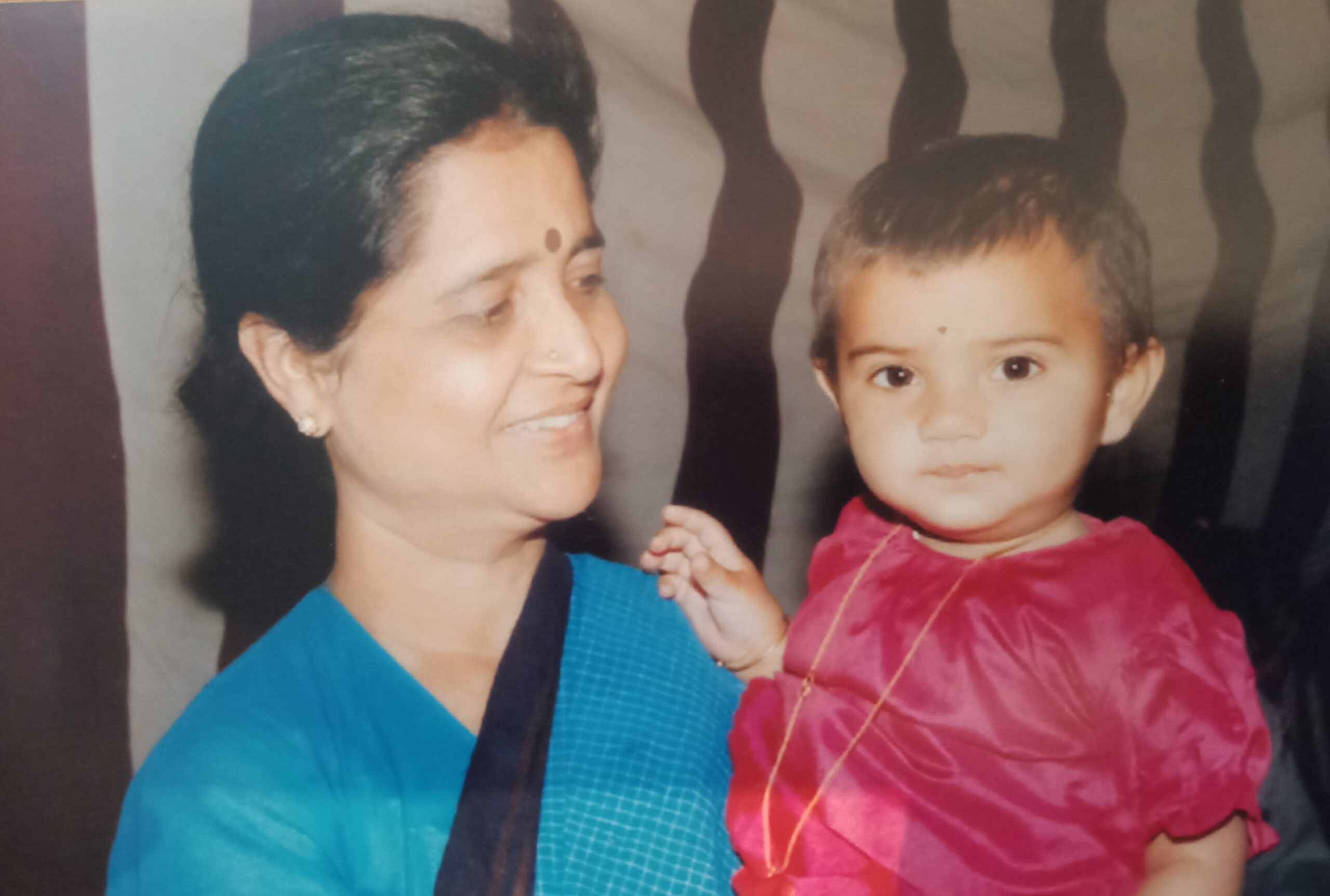
A photo of Paati and me.
“How long do we live in the home of our memories, before embracing the people, places, and culture we find ourselves in? I carry memories of my childhood home in South India wherever I go – the temples, the festivals, my grandfather’s bungalow surrounded by fruit trees in Trichy, Tamil Nadu, the villages nearby where we swam in the river, listened to folk songs by the farmers… but that time & those spaces don’t exist anymore.”
2. We live in many homes at once
“Not everything about a person is visible, so how can you possibly box me into an Equal Opportunity checkbox? We need Inclusion, diversity & multiple belongings because we’re complex individuals – made up of so many multiple contradictions.”
We are all holding multiple identities (and questions around belonging) at once – cultural, racial, familial, professional, spiritual, place-based, planetary… The relationships we forge with the diversities within us and with others around us is key to our wellbeing.
The journey to find our place in the world is like sailing in the sea as we anchor in different parts of the world. Through conversations, I realised the way to amplify our belonging in a new place is to identify our internal anchors.
New experiences, cultures and people will crash into us like waves from all directions. The only way to stay moored is to find that anchor within one’s self.
3. Belonging and un-belonging are always in flux
Feelings of belonging and un-belonging are constantly in flux. Those in transition – as migrants, changing jobs, or with our hearts in many places – feel this flux more acutely. Those who define belonging as feelings of safety, sense moments of unsafety and vulnerability quite easily. Those who find belonging in community and relationships with others despise moments of loneliness and isolation.
Belonging, as my wonderful conversations have made me realise, is not the destination itself, but the interconnected moments where we come alive and come to rest, together.
“Belonging is in the moments, something we experience, and go in and out of. Certain conditions come together to create moments of peace and safety, but these are not permanent.”
4. Create safety within to create safety for others
As a Learning Designer and facilitator, I have been crafting spaces of growth and self-reflection for learners of all ages for the last eight years. But, as I now know, the weaker my relationship was with myself and my roots, the weaker the spaces I could hold for others. 21 Chats on Belonging is not only a library of inspiration to help me reflect and build strength, but also my way to reach out into the world and invite others asking questions about place and identity to co-create safe spaces of dialogue.
“I’m actively building that safety for myself. In those moments of worth, of being grounded, of belonging, it’s almost like it doesn’t matter where I am physically. I feel I’m fine & it’s ok to be me here, right now.”
5. We are all living in the same moment in time… together
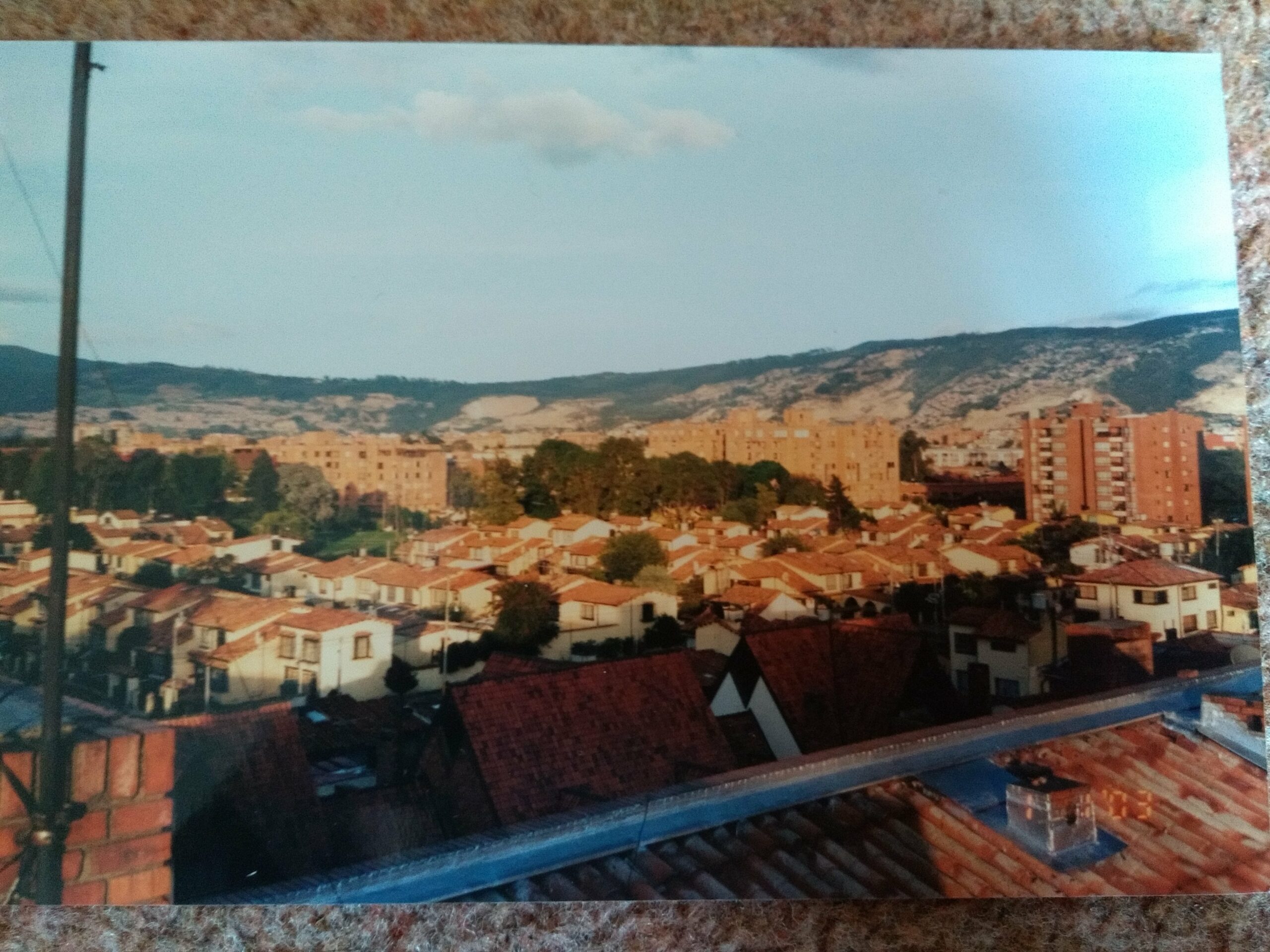
Jessica took this photo from her grandmother’s bedroom window in Bogota, Colombia, when she visited in 2019. The climate crisis was very much a worry for her, along with her grandmother’s health, when thinking about when, or if, she’d be able to return.
No matter what seen and unseen borders separate us – age, gender, power dynamics, histories, geographies – we are all living in the same moment in time. The COVID-19 pandemic, the climate and ecological crisis, the Human Rights abuses, and the systemic forms of ‘othering’ impact all of us across the world. While we are more globally connected than ever before, so many of us, including myself, keep silent about our estrangement and feel alone in our un-belonging.
My conversations on belonging have taught me that our journeys home (leaving and returning) and our stories of belonging (or not) are unique to each of us. Yet our individual narratives also weave into a collective tapestry of relationships and belonging – even as I sometimes feel like I stand by myself, I know I am not alone.
Further inspiration
- Join 21 Chats on Belonging on Twitter and Instagram
- David Whyte on coming home and belonging
- Join Jahnvi and Enrol Yourself on a 6-month Learning Marathon on Belonging
Read more
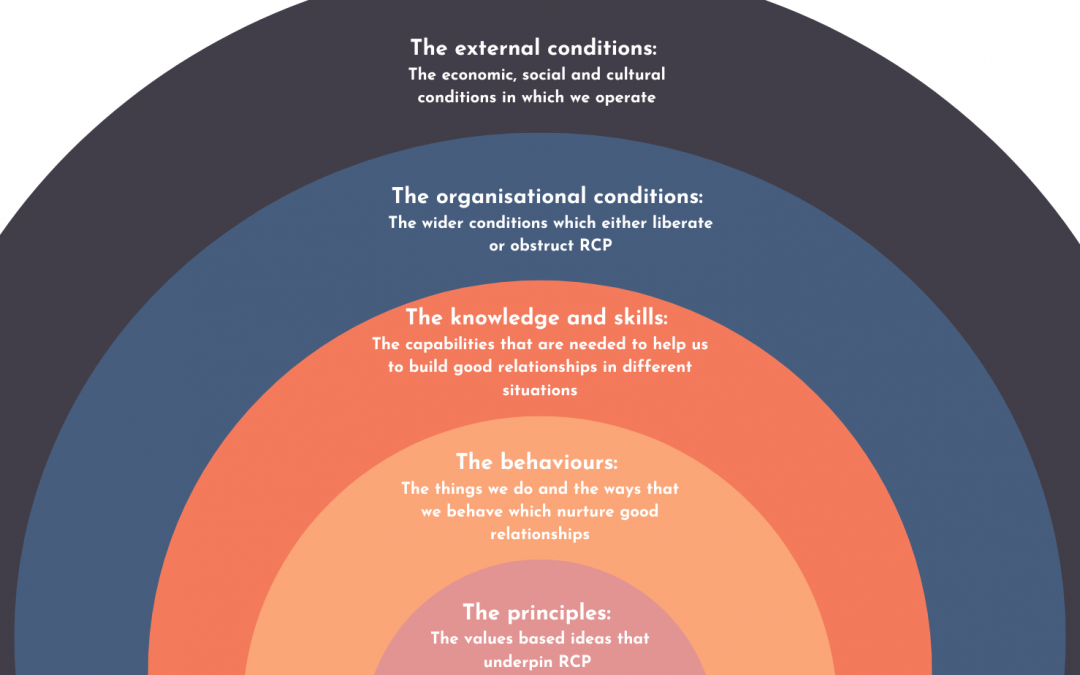
What we mean by relationship-centred practice
Key Concepts | What we mean by relationship-centred practiceRelationship-Centred Practice puts relationships first. It unlocks potential and meets need by positioning meaningful and effective relationships as the first order goal, both an end in itself and the means...
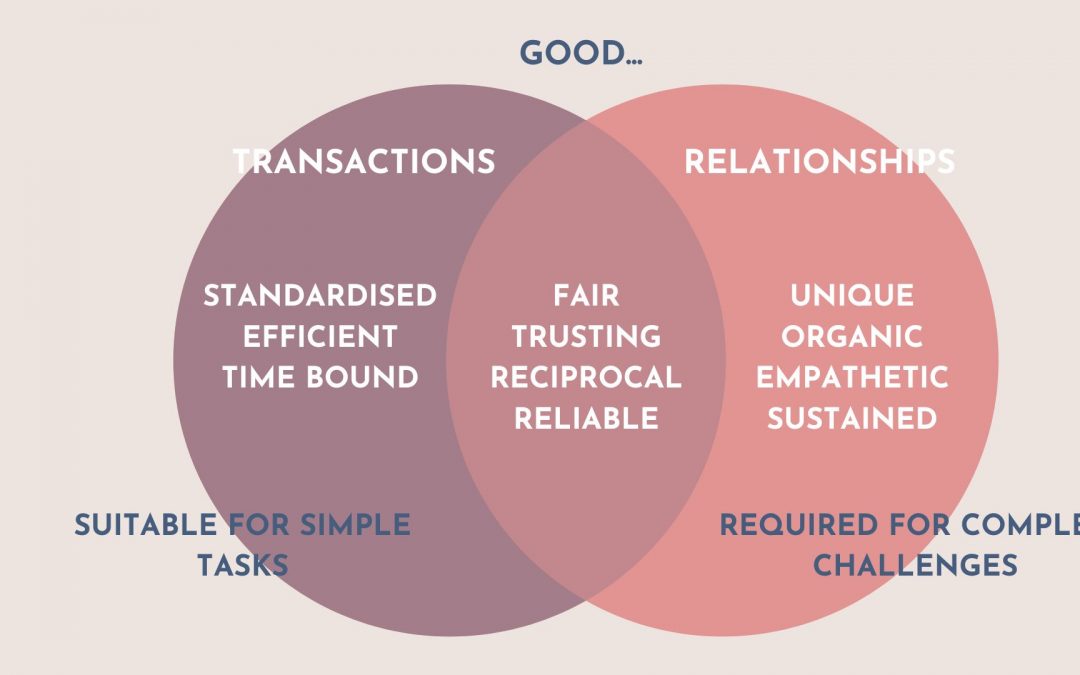
What we mean by good relationships
Key Concepts | What we mean by good relationshipsWe often use the word ‘relationship’ to mean different things – from the relationship we might have with our bank to the relationship we might have with a family member. To draw out what we mean by good relationships,...
